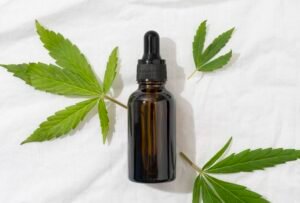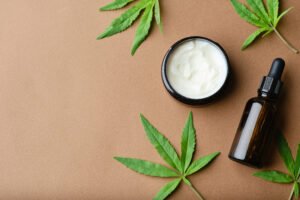In the past decade, the legalization of recreational cannabis has seen a notable rise, prompting the need for a comprehensive understanding of its implications for various health-related aspects. While previous reviews have provided a broad overview of research related to cannabis liberalization policies, encompassing decriminalization and medical legalization, there’s a growing necessity to concentrate on the more recent studies that specifically address the effects of recreational cannabis legalization. Therefore, this review aims to condense the findings of existing research that employs longitudinal designs to assess the consequences of recreational cannabis legalization on patterns of cannabis use and its associated outcomes.
The evolving landscape of cannabis legislation, particularly in the context of recreational use, has sparked interest among researchers, policymakers, and the public alike. As more regions and countries undergo transformations in cannabis policies, it has become crucial to delve into the longitudinal research that focuses on tracking the implications of such legislative changes.
Also Read: CBD for RLS
This review delves into the body of work that specifically centers around the impacts of recreational cannabis legalization. By narrowing the focus to studies employing longitudinal designs, it ensures a more precise examination of the trends and outcomes associated with these policy shifts. This allows for a deeper understanding of the effects on cannabis consumption and its related consequences over time.
As the legal status of recreational cannabis continues to change, evaluating the data produced by longitudinal studies becomes essential. This in-depth analysis aids in making informed decisions regarding the future of cannabis legislation, its potential effects on patterns of use, and its impact on various health-related outcomes. By synthesizing the latest research findings in this field, this review contributes to the ongoing discourse surrounding recreational cannabis legalization and its implications for public health and policy.
What is recreational weed?
Recreational weed, also known as adult-use cannabis, is a term associated with laws that permit individuals aged 21 and older to purchase cannabis products. Currently, 19 states have embraced the legalization of adult-use cannabis, treating it in a manner similar to alcohol, where adults can make purchases without requiring a doctor’s recommendation.
The primary appeal of adult-use cannabis lies in its capacity to induce enjoyable mind-altering effects. Many recreational cannabis products contain tetrahydrocannabinol (THC), a chemical renowned for its mood-altering properties, which can lead to impaired cognitive function and reduced body coordination. While THC also has significant medical applications, it is often consumed for the pleasurable “high” it imparts.
Also Read: Marijuana Tea
It’s worth noting that the distinction between medical and recreational cannabis can sometimes blur, as some medical patients opt to obtain their cannabis from adult-use dispensaries. Consequently, not every customer at a recreational cannabis store is necessarily using the substance for non-medical purposes, further complicating the landscape of cannabis consumption.
How do people use recreational cannabis besides getting high?
American adults are increasingly recognizing that recreational cannabis can offer more than just the stereotypical “high” associated with its use. Rather than being associated with careless drug use, cannabis is now being intentionally incorporated into people’s lives to improve their overall well-being. It’s becoming evident that responsible and mindful cannabis use can have a positive impact on various aspects of life, including mental health and spiritual well-being.
Researchers have delved into the potential benefits of recreational cannabis and found that it can be correlated with healthier life choices. Some of the ways in which cannabis is being utilized besides achieving a state of euphoria include enhancing sexual enjoyment, serving as an alternative to alcohol, and contributing to spiritual practices, based on recent research.
Interestingly, recreational cannabis can also be harnessed for its non-intoxicating properties. This is made possible by products containing low levels of THC and high levels of cannabidiol (CBD), a cannabis compound that doesn’t induce a “high.” These low-THC, high-CBD products are being embraced by individuals seeking therapeutic effects. While these products haven’t undergone thorough medical evaluations, they are being explored for their potential to address injuries, alleviate stress, and manage certain illnesses. Examples include topical lotions for nerve pain and products designed to alleviate menstrual discomfort.
Symptoms of Recreational Cannabis Use
Recreational cannabis use can result in various effects, both short-term and long-term, which users may experience differently:
1. Euphoria and Relaxation: Many users report feeling a sense of joy and deep relaxation when using recreational cannabis.
2. Heightened Senses: Recreational cannabis can intensify sensory experiences, enhancing sight, hearing, and taste.
3. Increased Appetite: Often referred to as “the munchies,” cannabis can lead to an increased appetite.
4. Impaired Coordination: Cannabis use can lead to a loss of coordination, making activities like driving unsafe and challenging.
Also Read: Teenagers and Cannabis
5. Altered Time Perception: Users may experience a distorted sense of time while under the influence of recreational cannabis.
6. Cognitive Impairment: Recreational cannabis can affect thinking and problem-solving abilities, which can be particularly problematic for tasks like driving.
7. Impaired Self-Perception: Some users may struggle to distinguish themselves from others while using cannabis.
8. Anxiety and Paranoia: Higher concentrations of recreational cannabis may lead to anxiety, panic reactions, or heightened suspicion and distrust. It’s important to note that not everyone experiences these effects, and some individuals use marijuana to manage anxiety.
Signs of Recreational Cannabis Use
Recognizing when someone has used recreational cannabis may involve observing certain signs and behaviors, including:
1. Dizziness: Users might appear dizzy or disoriented.
2. Difficulty Walking: Walking may become a challenge for individuals under the influence of cannabis.
3. Euphoric Behavior: Users may exhibit silliness and giggling for no apparent reason.
4. Bloodshot Eyes: Red, bloodshot eyes are a common physical sign of cannabis use.
5. Short-Term Memory Issues: Some individuals may struggle to remember recent events or conversations.
Also Read: Marijuana Causing Headaches
It’s important to note that the effects of recreational cannabis use can vary among individuals, and not everyone will experience all of these symptoms. Additionally, long-term, daily cannabis users might face a distinct condition known as cannabinoid hyperemesis syndrome, characterized by repeated and uncontrolled vomiting. Some individuals find temporary relief from this syndrome through hot showers, while others may require medical attention.
Short-term & Long-term use of Recreational Cannabis on health
Short-term effects of Recreational Cannabis use can vary based on factors like the user’s tolerance, the potency of the marijuana, and the individual’s age. These effects may be more pronounced in novice users, older individuals, or those exposed to high-strength THC products. Common short-term side effects of Recreational Cannabis include:
1. Distorted Perception: Users may experience alterations in their perception of sights, mood, sounds, time, and touch.
2. Slower Reaction Time: Recreational Cannabis can impair a person’s ability to react quickly.
3. Physical Effects: These can include reddened eyes, dry mouth, loss of coordination, dizziness, and increased heart rate.
4. Cognitive Impairment: Users may encounter difficulties with memory and problem-solving.
5. Increased Appetite: Often referred to as “the munchies,” Recreational Cannabis can lead to heightened cravings for food.
6. Problems with Balance: Users may experience difficulties maintaining balance and coordination.
7. Psychological Effects: Recreational Cannabis can cause agitation, anxiety, confusion, panic, paranoia, hallucinations, delusions, and in some cases, psychosis. The risk of these effects is greater with the use of potent THC strains.
Recreational Cannabis use can also impair reaction time, making activities like driving dangerous, which is a significant public safety concern. NIDA research indicates that Recreational Cannabis impairs drivers’ judgment and ability to respond to signals and sounds, highlighting the risks of driving under the influence of THC. Combining Recreational Cannabis and alcohol can exacerbate these effects.
Additionally, high levels of THC can contribute to mental health issues such as panic attacks, paranoia, and acute psychosis, especially in individuals with preexisting psychiatric conditions. Chronic Recreational Cannabis Users may experience lingering impacts on memory and learning for days or weeks after the acute effects subside.
Also Read: Cannabis for Parkinson’s Disease
It’s important to note that Recreational Cannabis purchased from street sources may be adulterated or mixed with other substances, leading to unknown and potentially dangerous side effects. Therefore, the safety and purity of Recreational Cannabis products should be considered.
Long-term use of Recreational Cannabis can result in several persistent health effects:
1. Cardiovascular Issues: Prolonged use may lead to heart problems due to the increased heart rate associated with cannabis consumption.
2. Respiratory Problems: The inhalation of cannabis smoke can cause lung irritation, leading to issues like coughing and difficulty breathing.
3. Mental Health Implications: Long-term use is linked to various mental health concerns, including anxiety, depression, and an increased risk of psychosis or suicide.
4. Pregnancy and Newborn Complications: Pregnant individuals who use Recreational Cannabis risk complications during pregnancy and potential issues for newborns.
5. Dependence and Addiction: Persistent cannabis use can lead to dependence and addiction, making it challenging to quit.
6. Withdrawal Symptoms: Individuals who have used cannabis over an extended period may experience withdrawal symptoms upon discontinuation.
7. Cannabis Hyperemesis Syndrome: Some long-term users may develop a cyclic condition characterized by severe nausea and vomiting, known as cannabis hyperemesis syndrome.
It’s essential to be aware of these potential long-term effects associated with the recreational use of cannabis.
Legalization of cannabis, especially recreational cannabis, offers several noteworthy benefits. One significant advantage is the removal of cannabis from the underground illegal market. This shift towards legalization brings cannabis into the realm of legitimate businesses, providing an environment with oversight and regulations. As a result, consumers can have confidence in the quality and safety of the products they purchase. Legalized cannabis products undergo testing and quality control measures, and they come with informative labels, ensuring that consumers are well-informed about what they’re using. In contrast, buying cannabis from illicit sources, such as street corners, can be risky, as the content and quality of the product are often uncertain.
Furthermore, it is essential to consider the historical context of drug laws, which have, in many instances, disproportionately targeted communities of color and minorities. Legalizing cannabis represents a significant step towards reducing the over policing of these populations. It helps address issues of racial disparities and social justice by reforming drug policies that have disproportionately affected marginalized communities. By moving towards legalization, we aim to create a more equitable and just society while ensuring the safety and well-being of all consumers.
FAQs
Q. What is recreational weed, and how is it different from medical cannabis?
A. Recreational weed, often referred to as adult-use cannabis, is a term used for cannabis laws that allow individuals aged 21 and older to purchase cannabis products without requiring a doctor’s recommendation. Unlike medical cannabis, which is used for specific health purposes, recreational cannabis is primarily consumed for its enjoyable mind-altering effects.
Q. How do people use recreational cannabis besides getting high?
A. Recreational cannabis offers various uses beyond getting high. It’s increasingly being incorporated into people’s lives to improve overall well-being. This includes enhancing sexual enjoyment, serving as an alternative to alcohol, and even contributing to spiritual practices. Additionally, low-THC, high-CBD cannabis products are used to treat injuries, reduce stress, and manage certain illnesses without inducing a high.
Q. What are the short-term effects of recreational cannabis use?
A. Short-term effects of recreational cannabis use can vary based on factors like tolerance and potency. Common effects include euphoria, heightened sensory perception, increased appetite, impaired coordination, altered time perception, cognitive impairment, and, in some cases, anxiety or paranoia.
Q. What signs indicate that someone has used recreational cannabis?
A. Recognizing signs of recreational cannabis use may include observing symptoms like dizziness, difficulty walking, euphoric behavior, red, bloodshot eyes, and short-term memory issues. These signs can vary from person to person.
Q. What are the long-term effects of recreational cannabis use?
A. The long-term effects of recreational cannabis use can encompass heart problems, lung irritation, mental health issues, complications in pregnancy, dependence and addiction, withdrawal symptoms, and cycles of severe nausea and vomiting, known as cannabis hyperemesis syndrome.
Q. What benefits does cannabis legalization bring, especially for recreational use?
A. Legalizing cannabis, particularly for recreational use, offers several benefits. It brings cannabis out of the illegal market, ensuring quality control, safety, and informative labeling for consumers. It also helps reduce the over-policing of communities of color and minorities, contributing to a more equitable and just society.








